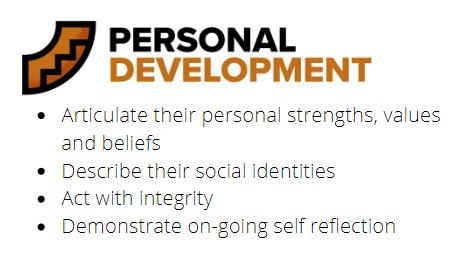
MIKAL KENFIELD
Assistant Dean of Students, Director of Residence Life
BA, Concordia College (Secondary Education)
MS, NDSU (Educational Leadership)

EMILY MEYER
Assistant Director for Residential Education
BA, Ripon College (History)
MA, University of St. Thomas (Leadership in Student Affairs)
CARLOS MATA
Assistant Director for Operations
BA, Ball State University (Telecommunication - AA in Spanish) MA, Ball State University (Student Affairs Administration)
MARK WELZENBACH
Housing Specialist
SEAN PAYETTE


Area Coordinator, Park Region and Fjelstad
BA, Concordia College (Music Education)
MA, UW-La Crosse (Student Affairs Administration)
EMILY MOYER




Hall Director, Erickson Hall

BA, Concordia College (Psychology)
GRACE VETRONE
Hall Director, Livedalen Hall
BA, MSUM (English: Publishing and Writing)
MA in progress, MSUM (Educational Leadership)
MEGAN DOLEZAL
Hall Director, Hallett Hall
BA, Montana State University (East Asian Studies and History)
MA, Sarah Lawrence College (Women's History)
STUDENT STAFF
Residence Life provides a number of opportunities for students to engage in leadership and employment.
Resident Assistants—Returning students who mentor and support their floor members while creating a safe and inclusive community. ($5200 yearly stipend)
Director’s Assistants—Juniors/Seniors who manage the hall desk, mentor the RAs, and provide general administrative support for the hall. ($5900 yearly stipend)
Building Managers—Juniors/Seniors who manage the campus apartments/townhouses. ($5500 yearly stipend)
Desk Workers—Assist residents and provide security to the building. (Campus hourly wage)
HALL DIRECTORS/AREA COORDINATOR
Hall Directors are professional, full time, 10 month employees They live in a fully furnished apartment in each residence hall, and many have Master’s degrees in Student Affairs/Higher Ed Administration
No week (or day!) is ever the same, but typical Hall Director responsibilities include: Supervision of student staff, conduct meetings, meeting with students of concern, departmental/divisional committee work, and emergency response. HDs share in a weekly 24/7 on call rotation.
ASSISTANT DIRECTOR FOR OPERATIONS
Provides oversight for the new and returning student housing sign-up processes, coordination with Facilities Management, oversee move-in and move-out processes, manage special housing accommodations.
ASSISTANT DIRECTOR FOR RESIDENTIAL EDUCATION
Provides oversight for student staff hiring and training, implementation of Residential Curriculum and other educational initiatives, student leadership opportunities and coordination of departmental PEAK.
HOUSING SPECIALIST
Frontline customer service in the Residence Life Office, student assignments and billing, housing software administrator.
ASSISTANT DEAN OF STUDENTS; DIR OF RESIDENCE LIFE
Oversee curricular approach for SDCL Division, ensure Residence Life systems and initiatives are equitable, set departmental initiatives, manage budget and revenue projections, coordinate emergency reponse processes, supervision of all residence life professional staff.
Living on campus is part of a student's educational experience, so we structure our work around the Student Development and Campus Life Division's shared Learning Goals and Outcomes.




Below are the shared SDCL Goal and Outcomes. When we think about the work we do with students, we ...
focus less on 'let's fill up the calendar' focus more on 'how can we help students learn these things?'
PROGRAMS
In-person group activities facilitated by RAs help us meet learning goals. We use lesson plans for our staff to follow to ensure learning outcomes are aligned with our division's goals. These can be for individual floors, or entire buildings.
BULLETIN BOARDS
Most boards are created by following a lesson plan and are specifically chosen to provide useful content for that time of year, and for that floor’s resident population. We often partner with other offices in our division to help get timely information to our residents.
NEWSLETTERS
Hall Directors send regular communication to their residents - also using intentional lesson plans. This ensures that students are getting consistent messaging about relevant information.
COBBER CONNECTS
Twice a semester, RAs have thoughtful and intentional one on one meetings with their residents. They use a lesson plans to engage their residents in conversation about topics that are timely for that part of the year.
CONDUCT SYSTEM
If a student violates a disciplinary policy, the conduct process is another method we use to help the student reflect on their decisions and develop their critical thinking skills. Most students choose the Restorative option, which means they accept responsibility and work with a conduct officer to identify harm caused and a plan to repair that harm.
ROOMMATE AND FLOOR AGREEMENTS
Even a document like a roommate agreement can be a teaching tool. Students use these agreements to identify and share their needs, create plans to responsibly share space with others, and set out expectations for addressing conflict.
Assessment: We utilize a variety of indirect and direct assessment methods to determine if we are meeting our goals and objectives. Most commonly, this includes surveys, collection of student ‘artifacts’, focus groups and observation
We have a number of ways to 'teach' our residents. Here are just a few!






